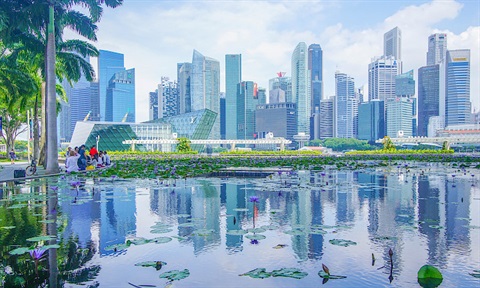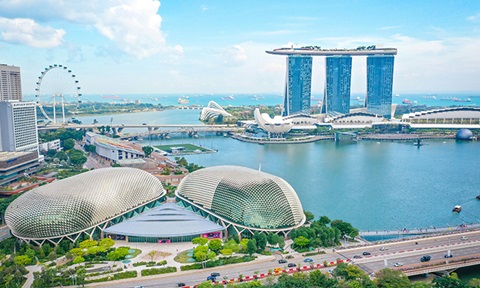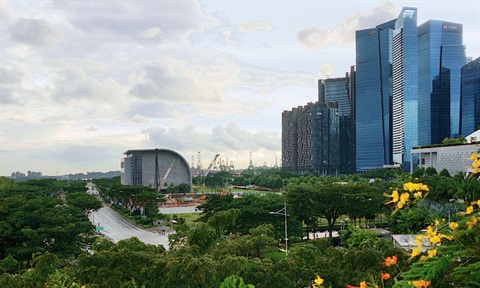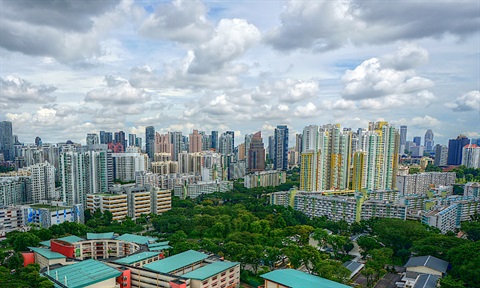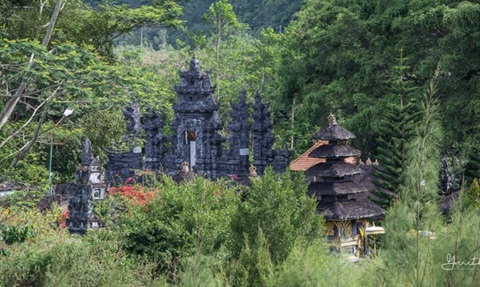Sustainability Education
Education is the key enabler of creating a sustainable world for future generations. At NTU, we seek to incorporate sustainability education for students at different stages of their learning journey, through relevant courses or programmes, to provide them with the foundation and practical tools for understanding the concepts of sustainability and applying them to solve real world problems.
Undergraduate Programmes
Since 2021, we have introduced a sustainability course in our common interdisciplinary core curriculum for all undergraduates. This course aims to develop students with the critical skills to collaborate across disciplines to systematically analyze major sustainability challenges from the perspectives of society, economy, and the environment. Students will learn to address sustainability issues from different viewpoints and at different scales. They will then use these skills to discuss and propose solutions for sustainability challenges facing Singapore and the world.
- Bachelor of Engineering in Environmental Engineering
- Bachelor of Engineering in Bioengineering
- Bachelor of Engineering in Chemical and Biomolecular Engineering
- Bachelor of Science in Environmental Earth Systems Science with three specialization options (Geosciences, Ecology, Society)
- Bachelor of Science in Environmental Earth Systems Science and Public Policy and Global Affairs
- Bachelor of Science in Chemistry and Biological Chemistry with Second Major in Environmental Science
- Bachelor of Science in Biological Sciences
- Bachelor of Science in Physics & Energy Studies and Education
- Bachelor of Arts in Geography
- Second Major in Sustainability
- Second Major in Food Science and Technology (Open to Bioengineering, Chemical and Biomolecular Engineering, Chemistry and Biological Chemistry, Biological Sciences)
- Second Major in Society and Urban Systems (Open to Civil Engineering, Electrical & Electronic Engineering, Environmental Engineering, and Mechanical Engineering)
- Minor in Environmental Sustainability
- Minor in Sustainable Urban Planning
- Minor in Environmental Management
- Minor in Environmental Humanities
- Minor in Science, Technology and Society
- Minor in Science of Learning
- Minor in Chemistry and Biological Chemistry
Postgraduate Programmes
NTU is pioneering a new push in PhD education that will tear down barriers and drive research into areas that need a multi-disciplinary approach. In keeping with global trends and needs, students at the Interdisciplinary Graduate Programme at NTU will concentrate on two or more disciplines, instead of one. Today, fresh thinking is urgently needed to mitigate many global challenges, not least in environmental sustainability, the creation of viable alternative energy solutions, and many other wide-ranging and complex issues.
Executive Master of Science in Sustainability Management
The Executive Master of Science (MSc) in Sustainability Management is a specialised graduate business degree programme designed to equip corporate executives and experienced professionals with the right skills, knowledge, and leadership capabilities to transition their companies to operate within the green economy.
Ultimately, the programme aims to cultivate leaders and managers who can incorporate sustainable development when crafting strategy and driving sustainable green operations. You will learn to develop, implement, scale, and evaluate new tools, technologies, and processes needed for businesses to make the sustainability transition.
Tailored to meet the needs of busy schedules of executives and professionals who are looking to enhance their expertise and leadership capabilities in sustainability management, the programme offers a unique flexibility via stackable learning pathways from the FlexiMasters Certificate to the full Master's degree.
Got a question? Email us at [email protected]
1-year part-time specialised Master's degree
The specialised graduate business degree is designed specifically to meet the needs of busy executives and experienced professionals.
Interdisciplinary curriculum
Gain access to an interdisciplinary group of leading experts, industry practitioners and faculty members across NTU and world-class research institutes.
Stackable learning pathways
The programme offers flexibility via stackable learning pathways from the FlexiMasters Programme to the full Executive Master's degree.
Designed for lifelong learning
Eligible participants and sponsoring companies can enjoy SkillsFuture subsidy of up to 90% for the FlexiMasters Programme, thus reducing the overall cost of the Executive MSc.
Contextualised for business
Offered by a premier business school in Singapore and Asia, the programme is predominantly focused on sustainability management in a business context.
Diverse networking opportunities
Connect, exchange, and foster collaborations in addressing sustainability issues in the broader business community from across industries.
Professional experience and quality of achievements
- Demonstrated professional experience in sustainability related or focused roles
- Recommended by the organisations to acquire sustainability skills
- Minimum ten years of work experience1
Passion and interest in business and environment
- Demonstrate passion and interest in pursuing a career in management at the intersection of business and the environment.
- Deep interest and demonstrated intent to chart a course for the whole organisation
- Have a clear motivation for intellectual growth, both in the classroom and beyond.
Academic requirements1
- Undergraduate degree2
- Fluent in both spoken and written English
1Candidates with academic qualifications other than the above (e.g., completed the FlexiMasters programme stackable towards the Executive MSc programme within the last 5 years with a minimum GPA of 2.5) are encouraged to apply for the programme, subject to at least 10 years of experience and approval by the University.
Credit transfers are by application only and will be assessed and approved by the University, and the minimum Grade Point eligible for transfer of credits is 2.5. Credit transfer is subject to cap as per University Credit Transfer Policy.
2Candidates without an undergraduate degree but who have achieved satisfactory results in the FlexiMasters in Sustainability Business Ecosystems are encouraged to apply for the programme.
To accommodate to the schedule of mid to senior-level executives, the programme will be delivered in six academic blocks of four to eight consecutive days each over twelve months.
During the course of the programme, you will be required to complete:- 8 Core Modules
- 4 Electives Modules
- Integrated Capstone Module
You will explore key areas of sustainability necessary to address the complex challenges in today's rapidly changing global business environment. Please refer to our Programme curriculum for more details.
| PROGRAMME CALENDAR (Aug — Jul) | |||||
| Academic Block 1 13 - 20 Aug 2024 (8 days) | Academic Block 2 8 - 15 Oct 2024 (8 days) | Academic Block 3 3 - 6 Dec 2024 (4 days) | Academic Block 4 11 - 16 Feb 2025 (6 days) | Academic lock 5 8 - 13 Apr 2025 (6 days) | Academic Block 6 8 - 15 Jul 2025 (8 days) |
The University reserves the right to change the schedule without prior notification due to unforeseen circumstances.
Class Hours
Climate and Environment
► (Core) Climate System and Climate Change - 1.5 AUs
► (Elective) Nature-based Solutions - 1.5 AUs
► (Elective) Climate Risk Assessment - 1.5 AUs
Business and Management
► (Core) Greenhouse Gasses Emissions: Measurement and Management - 1.5 AUs
► (Core) Sustainability Reporting - 3 AUs
► (Core) Sustainability and Law - 3 AUs
► (Elective) Embedding Natural Capital into Business Decision Making - 1.5 AUs
Strategy and Innovation
► (Core) Corporate Sustainability: Strategies and Innovations - 3 AUs
► (Elective) Sustainable Finance - 1.5 AUs
► (Core) Designing and Innovating for Sustainability - 3 AUs
► (Core) Sustainable Operations - 3 AUs
Technology and Energy
► (Elective) Technologies for Urban and Built Environment - 1.5 AUs
► (Elective) Technology for Carbon Management - 1.5 AUs
► (Core) Sustainable Energy Technologies - 3 AUs
► (Elective) Circular Economy and Technologies - 1.5 AUs
Integrated Capstone
► Consolidate the concepts and learnings from earlier modules, where you will apply classroom knowledge to real-world business situations via real-world projects to address crucial sustainability management issues - 3 AUs
Candidature
The total number of AUs required to graduate with an Executive MSc in Sustainability Management is 30 AUs, which includes Core Courses (21 AUs), Elective Courses (6 AUs), and an Integrated Capstone (3 AUs).
The FlexiMasters in Sustainability Business Ecosystem Programme is offered as part of the academic load and fulfilment of the requirements for the full MSc degree.
The minimum period of candidature is 1 year, and the maximum period of candidature is 4 years.
 | Applicants to the Executive MSc have the option to complete the Executive MSc programme in a stackable manner via the FlexiMasters programme. The FlexiMasters in Sustainability Business Ecosystem Programme* is offered as part of the academic load and fulfilment of the requirements for the Executive MSc degree. The course credits earned from the FlexiMasters programme may be accepted as partial fulfilment of the requirements for the full MSc degree, subject to assessment and approval by the University, and the minimum Grade Point of 2.5. Graduates of the FlexiMasters programme will pay the remaining fees for the Executive MSc after deducting the fees for the FlexiMasters. *FlexiMasters in Sustainability Business Ecosystems
|
- Business
- Sustainability
- Part-time
- Master (Coursework)
- AY2023/24
- Nanyang Business School
- IGP-APRU-Global Sustainability, Waste & the City
- IGP-Earth Observatory of Singapore (EOS)
- IGP-Singapore Centre for Environmental Life Sciences Engineering (SCELSE)
- IGP-Energy Research Institute @ NTU (ERI@N)
- IGP-Nanyang Environment & Water Research Institute (NEWRI)
- IGP-NTU Institute for Health Technologies (HealthTech NTU)
- GIS and Geospatial Learning in Sustainability
Sustainability has become a key theme in higher education globally. It is also by now a core component of the revised MAHE programme. The spatial thinking tools and applications that you will learn in GIS will help you to better comprehend sustainability issues as well as devise solutions for such problems. This course will enable you to apply GIS vis-a-vis cross-disciplinary perspectives in the Humanities with respect to the Southeast Asian context.
- Global Cities
This course aims to introduce the urban ways of life and appreciate the emergence of global cities beyond the Global North. The course will also include various empirical and grounded experiences of global cities around the world, especially on issues related to urban liveability, sustainability, water, housing and other urban infrastructure issues.
- Environmental Planning and Management
This course examines selected environmental challenges in urban areas and explores planning solutions and management options to avoid or mitigate such problems. Multidisciplinary, integrated solutions that follow principles of sustainability are emphasized.
- Discourses in Sustainability
The environmental and social impacts of global climate change been increasingly emphasised. Accordingly, there is a need to equip learners with the history of sustainability studies, alongside current debates and possible future trajectories of this discipline. This knowledge will help learners better understand situations related to climate change and also opportunities in fostering environmental sustainability.
- Field Inquiry in Sustainability
Fieldwork strengthens our classroom concepts and gives the opportunity to understand the world through inquiry- based learning. This course will equip learners with both the qualitative and quantitative skills to collect and interpret data in ways that can help to inform environmental solutions for a more sustainable future.
- Second Major in Sustainability
- Aspiring students with a passion for Sport Science & Management (SSM) now can complement their degree by undertaking a Second Major in Sustainability. This Second Major in Sustainability within the SSM degree programme equips students with the knowledge and skills to address pressing environmental and social challenges faced by the sports industry.
- MBA (Sustainability & Innovation) Track
- Master by Research in Earth and Environmental Science
- Doctor of Philosophy in Earth and Environmental Science
- Joint NTU-TUM Master of Science in Green Electronics
- Master of Engineering (Research) in Civil and Environmental Engineering
- Doctor of Philosophy in Civil and Environmental Engineering
- Doctor of Philosophy in Biological Sciences
- Master of Science in Civil Engineering
- Master of Science in Maritime Studies
- Master of Science in Smart Manufacturing
- Master of Science in Power Engineering
- Master of Science in Materials Science and Engineering
- MBA (Strategy & Innovation)
- Master of Science in Finance
Continuing Education
NTU Continuing Education offers a wide range of programmes and courses for working professionals that are curated from various disciplines and conducted via different learning platforms. Aligning with the Government’s concerted effort to build sustainability as a way of work, play and life, that is the Green economy, specialised topics such as Sustainability Design, Energy Management, Environmental Management and etc. are created and delivered as either short courses or semester long courses, credit-bearing and stackable towards the relevant certificate(s) such as Specialist, Graduate and/or FlexiMasters certificate.














/enri-thumbnails/careeropportunities1f0caf1c-a12d-479c-be7c-3c04e085c617.tmb-mega-menu.jpg?Culture=en&sfvrsn=d7261e3b_1)

/cradle-thumbnails/research-capabilities1516d0ba63aa44f0b4ee77a8c05263b2.tmb-mega-menu.jpg?Culture=en&sfvrsn=1bc94f8_1)

7e6fdc03-9018-4d08-9a98-8a21acbc37ba.tmb-mega-menu.jpg?Culture=en&sfvrsn=7deaf618_1)


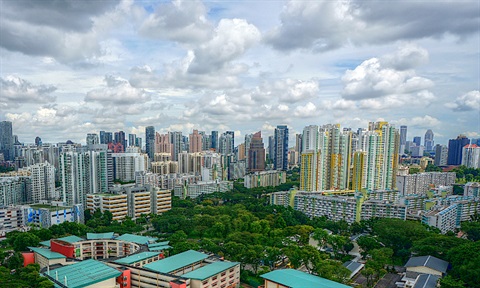





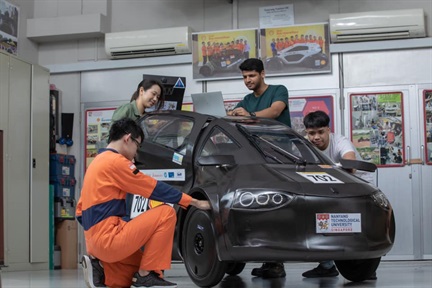

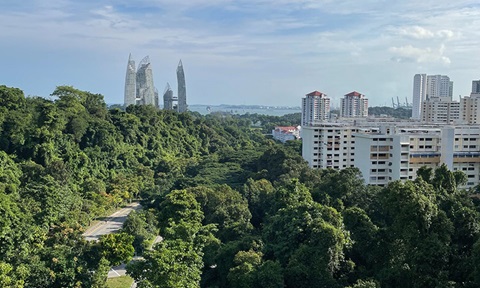
3b155ab0-477f-45d6-9972-7465366ee023.tmb-listing.jpg?Culture=en&sfvrsn=7e8fb3bc_1)
